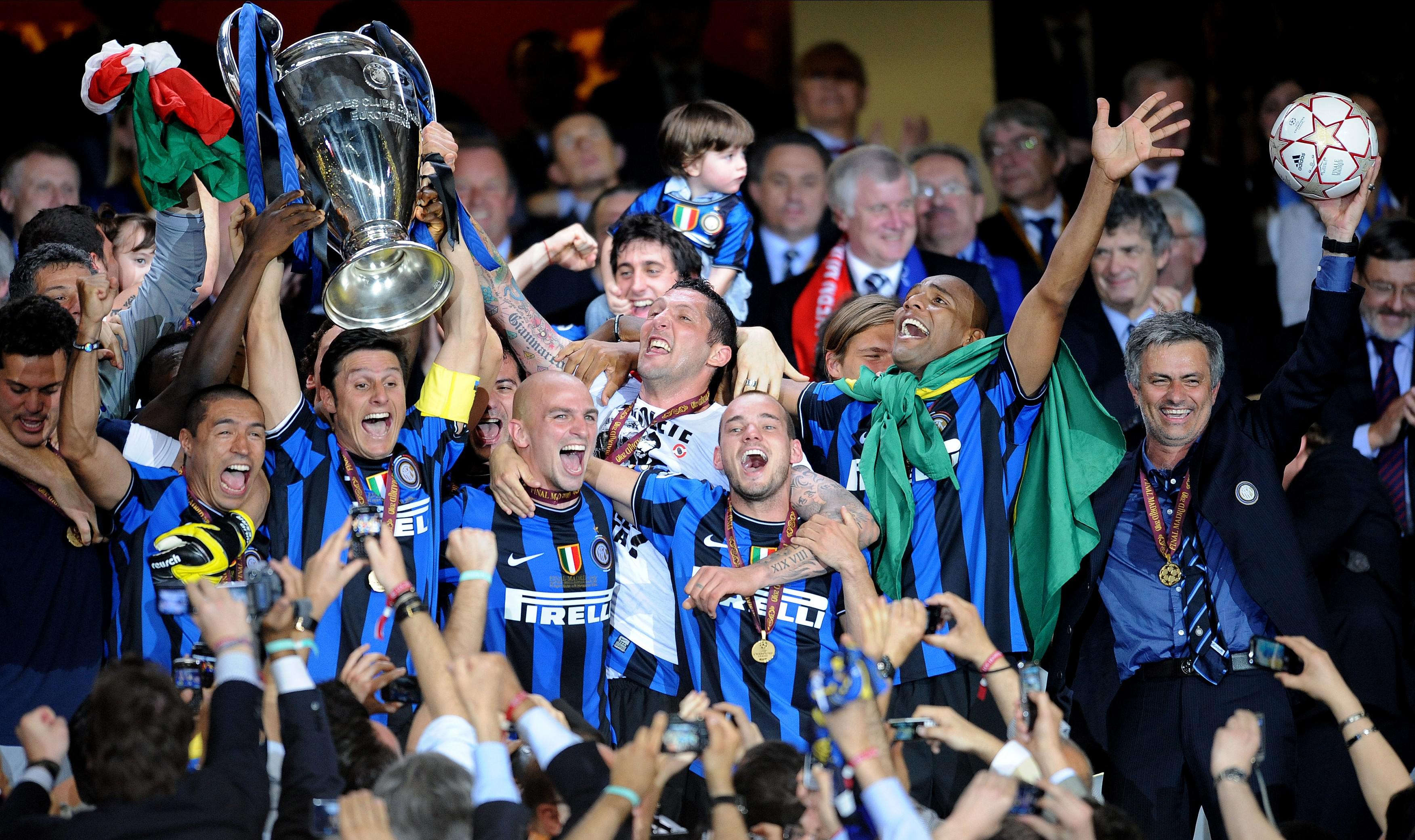Revealed! How the Premier League table should REALLY look this season
Analysing expected points (xPts) shows some alarming – and genuinely fascinating – up- and downturns for several top-flight sides this season. Conclusion? Oh wow, David de Gea...
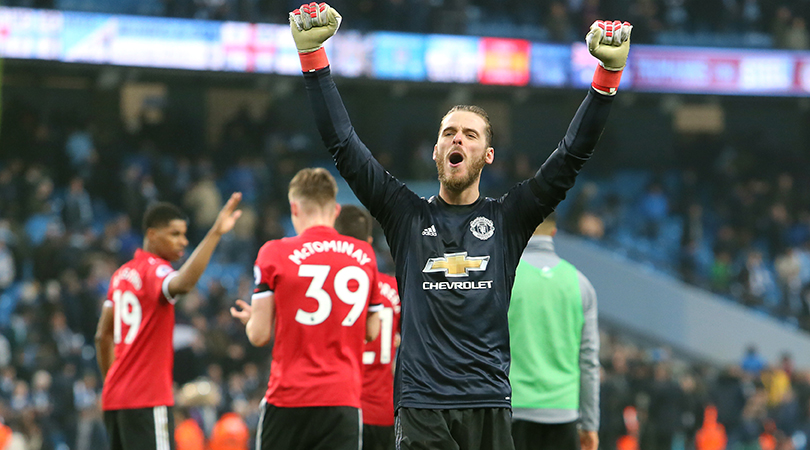
Please note: Data fromUnderstat
If you hate the concept of expected goals (xG), we recommend you close this window now and get back to work. If you don’t understand xG but would like to know what the bloody hell we’re talking about, then that’s great. Just give this a read first.
One thing xG data can do is hint at which teams are over- or underperforming. It analyses the quality of shots taken by each side and, using tens of thousands of simulations, calculates a scoreline for how the match would finish if all things were equal – and by things, we mean players. It’s therefore possible to see how many goals a team ‘should’ score or concede, and consequently how many points they ‘should’ win across a season.
Now, ‘should’ is a loaded term. What xG and xGA (expected goals against) is really telling us is the average scoreline that we might expect from the particular goalscoring opportunities in a match; that doesn’t necessarily translate to calling a team lucky, unlucky or cursed by witches.
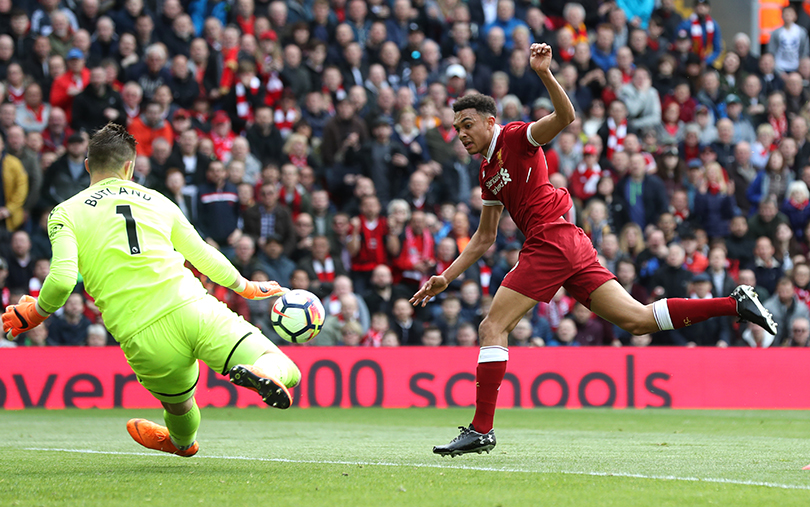
It can suggest that a team’s positive results are unsustainable. For instance, Reading’s xG performance in battling relegation from the Championship this season isn’t so different to their xG performance in reaching the play-off final last season, but their results reverted to the norm. However, the Royals weren’t hostages to fortune. It’s most likely that a side outperforming their xG score is being unusually clinical at one end and/or busy yet impenetrable at the other.
If a team is consistently winning games that xG and xGA values would have them draw or lose, then that will become evident in their xPts total.
“This match is a real 2.76-pointer”
Get FourFourTwo Newsletter
The best features, fun and footballing quizzes, straight to your inbox every week.
xPts, as you’ve probably guessed, stands for expected points (although researching the accuracy of expected pints has been both enlightening and enjoyable). It shows how many points from wins, draws and defeats that an average team could expect to have gained, based on the shots they took and allowed each opponent to take.
So, when Manchester City beat West Ham 4-1 recently, their xPts score was 2.76 and the Hammers’ score was 0.15. That’s because the average number of points City took from the game across thousands upon thousands of simulations was 2.76 – i.e. they won most of the time – while their opponents rescued a draw or even a statistically unlikely win only when everything went their way in attack and defence (which happened in approximately one of every seven match simulations).
Using xPts, we can see where each club might be now in the Premier League table, if every result this season was in line with the balance of play.
It makes for interesting reading.
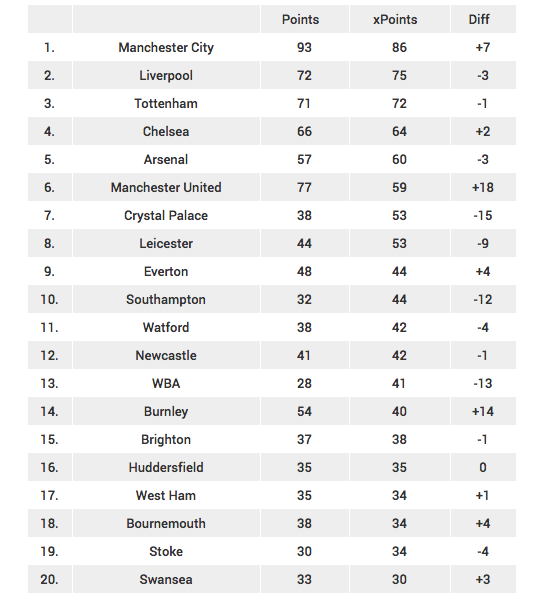
DDG, MVP
You may have noticed that Manchester United are sixth in this table. A total of 59xPts cuts them adrift of the top four and just one place higher than a team which, in real life, have half as many points as United. The Red Devils have gained a division-high 18 points – 18! – more than xG suggests they should. But why? Or how? Or simply: WTF?
Three questions, one answer: David de Gea. While Jose Mourinho’s team are clinical enough in attack to score 67 goals instead of the 57 forecasted by xG, the biggest difference is at the other end.
United have conceded 27 goals in 2017/18, only one more than the runaway champions across town, and yet the goalscoring opportunities they allow opponents would result in 41 conceded if they had a run-of-the-mill Premier League goalkeeper. That -14 difference between xGA and actual goals against is bettered only by the -16 of Nick Pope’s Burnley – more on them later – with no other team topping -5.
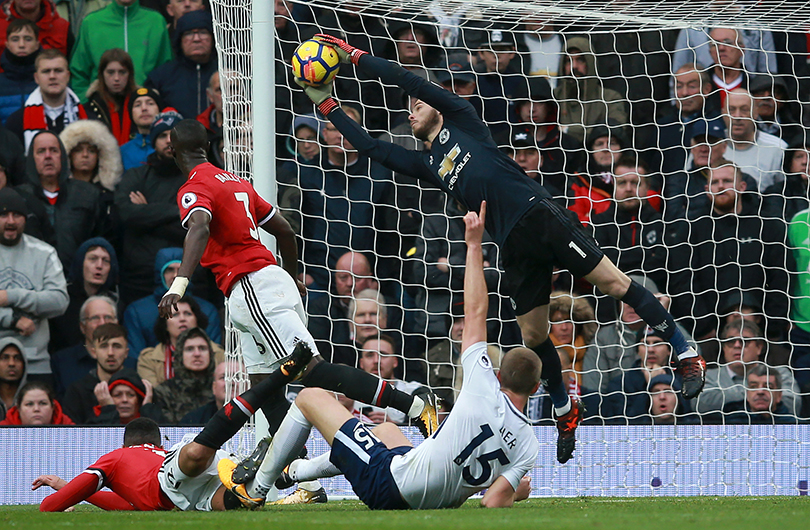
Again, it’s important to remember that this doesn’t mean Manchester United are lucky, unless the end of that sentence is ‘...to have a superb goalkeeper’. He’s a United player, not some random external force. Nor is his current rate of saving unsustainable: last season De Gea saved seven more goals than would normally be expected; in 2015/16 that number was six; in 2014/15, seven. He’s quite good.
No wonder the Spaniard has won United’s Player of the Year award in four of the past five seasons. And no wonder Mourinho has changed his mind since January 2017, when he referred to De Gea’s three consecutive awards under David Moyes and Louis van Gaal in saying: “I think when a goalkeeper is player of the season, it’s because something is wrong.” Right now, De Gea is keeping Mourinho in a job.
NEXT: This season's biggest culprit...
City fix problems at both ends
Elsewhere in the top six, it’s no surprise to see that Manchester City have taken every opportunity – you don’t break points records any other way. Their real tally is seven points higher than their xPts total, thanks in part to their attackers scoring 14 more goals than would be expected.
However, the best teams all rate highly for attacking performance: every club in the Premier League’s top nine is outscoring their xG this season, along with West Ham (thanks to a pair of clinical strikers in Marko Arnautovic and Javier Hernandez) and Bournemouth. It’s in defence that the top teams’ effectiveness varies, especially this season – which is why Ederson has been so important.
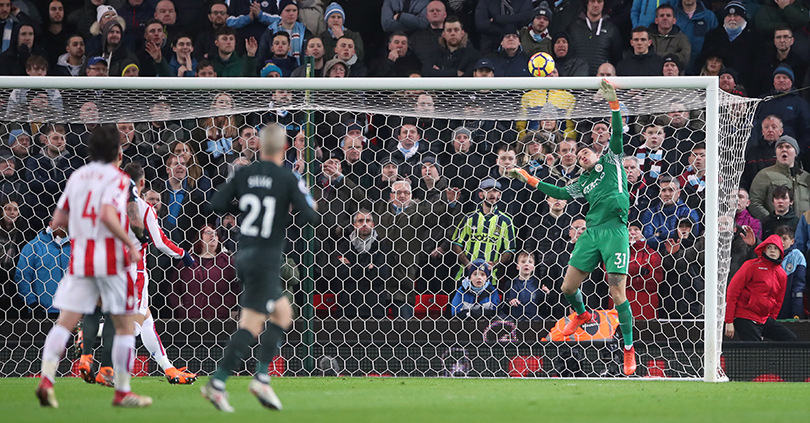
In 2016/17, with Claudio Bravo or Willy Caballero in nets, City let in 39 goals from an xGA total of 30. The result was seven ‘dropped’ points, while the other top-five sides each gained between six and 17. That’s quite the contrast. In fact, the xPts table had Pep Guardiola’s team winning the title by nearly 10 points, when in reality they finished 15 behind champions Chelsea. The Blues’ xG differential of +23, compared to City’s 0, pointed to an outfit that were extremely efficient in attack.
In 2017/18, City’s attack has been more precise while, perhaps more importantly, Ederson has kept their filthy sheets much cleaner and more in line with their xGA total. Guardiola and Mourinho both know the importance of a top goalkeeper.
Christian Benteke vs Crystal Palace
Roy Hodgson has done a phenomenal job with what looked to be a doomed Crystal Palace side. Even so, the idea of them qualifying for Europe requires an active imagination.
Yet that is what this xPts table says could, or even should, be happening. While they’ve conceded just one ‘extra’ goal in spite of their supposed goalkeeper crisis, Palace have netted only 41 goals from an xG total of 53, and being that far below average – not even good, but average – has cost them 15 points which would have taken them up to seventh.
It’s not FFT’s place to point fingers, but we’re going to do it anyway and name Christian Benteke as a key culprit. The burly Belgian has one of this Premier League campaign’s highest xG totals: 11.02, putting him 12th and above Roberto Firmino, Sadio Mané and Eden Hazard, among others. Of those 11 expected goals, Benteke has converted… three. And that’s including a penalty in the dying moments of a 5-0 win last week. Maybe this is where his hot streak starts.
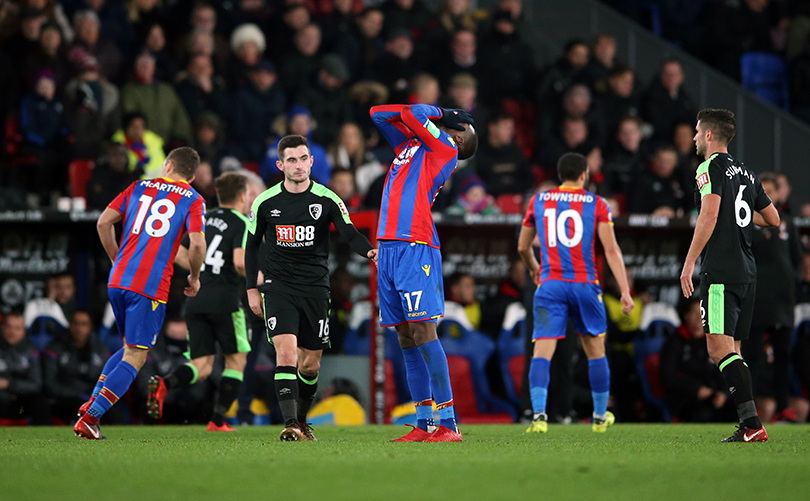
Sean Dyche, data-hater
Actually seventh are, of course, surprise package Burnley. Sean Dyche’s mob are the data-breakers.
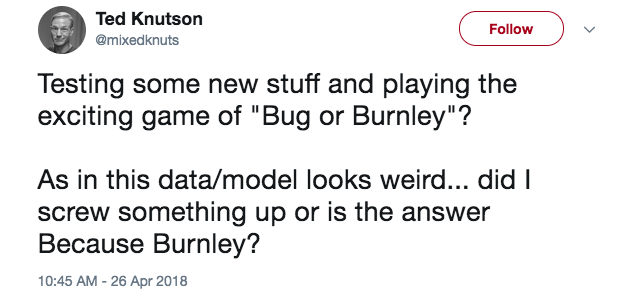
All season, Burnley have picked up points aplenty despite losing the xG/xGA battle. Now we’re into May and they’re booking Europa League flights, despite simulations suggesting they should have 40 points (they have 54) and a goal difference of -17 (it’s +3). The Clarets are averaging less than a goal per game – an incredible statistic for a team in their lofty position – and that’s still a better rate than they ‘should’ have, according to the quality of their chances.
However, it’s their defence that baffles boffins. Burnley concede far fewer goals than their xG suggests they will: just 32 instead of 48. One contributing factor is the emergence of shot-stopping wonder Nick Pope and his, ahem, papal infallibility, but primarily the anomaly is down to tactics.

Dyche’s defenders have no problem with letting opposition players shoot, because they’re knowledgeable enough about physics to know that a football can’t travel through six or seven bodies. Burnley get more men between the ball and their goal than any other team, leading to an artificially high xGA count as opponents ping off an abundance of low-value shots, only to see them fly into boots, gloves, midriffs and faces. Only Stoke allow the opposition to have more shots per game.
The difficulty of getting numbers around the ball at all times means that it’s not as simple as just playing deep – but it’s deeply effective. No? Oh, suit yourselves.
Oh when the Saints go marching down...
Facing relegation in this xPts universe are Bournemouth, Swansea and Stoke, yet the first two aren’t in the real-world bottom three. The Cherries and the Swans are both outperforming their respective xG and xGA values, Bournemouth to the point of reaching mid-table safety, owing largely to an xG differential of +5 goals.
Swansea are 17th in the only table that matters, but even that shows impressive efficiency when their xPts value would place them well short of safety. The performances of Lukasz Fabianski have been key, because goals (27) and opportunities to score them (xG 26.6) are at a premium up the other end.
Conversely, Southampton and West Brom are ensconced in the bottom three despite having had every opportunity to be mid-table – indeed, Southampton’s putative xPts tally would put them in the top half. They’ve let in nine more goals and scored four fewer than xGA and xG data has predicted.
While Saints are counting the cost of injured and misfiring strikers, the resulting 12-point swing being colossal and potentially lethal, West Brom are even worse off despite an uplift in form under Darren Moore.
A monumental 13-point shortfall means that an ‘average’ Baggies team which took their chances and gave opponents fewer freebies would be 13th. In other words, they could be sat above Burnley, the most surprising entrants to continental competition since Australia joined Eurovision.
Neither West Brom nor Southampton ‘should’ be going down. That’ll comfort them in the Championship… right?
Huw was on the FourFourTwo staff from 2009 to 2015, ultimately as the magazine's Managing Editor, before becoming a freelancer and moving to Wales. As a writer, editor and tragic statto, he still contributes regularly to FFT in print and online, though as a match-going #WalesAway fan, he left a small chunk of his brain on one of many bus journeys across France in 2016.

